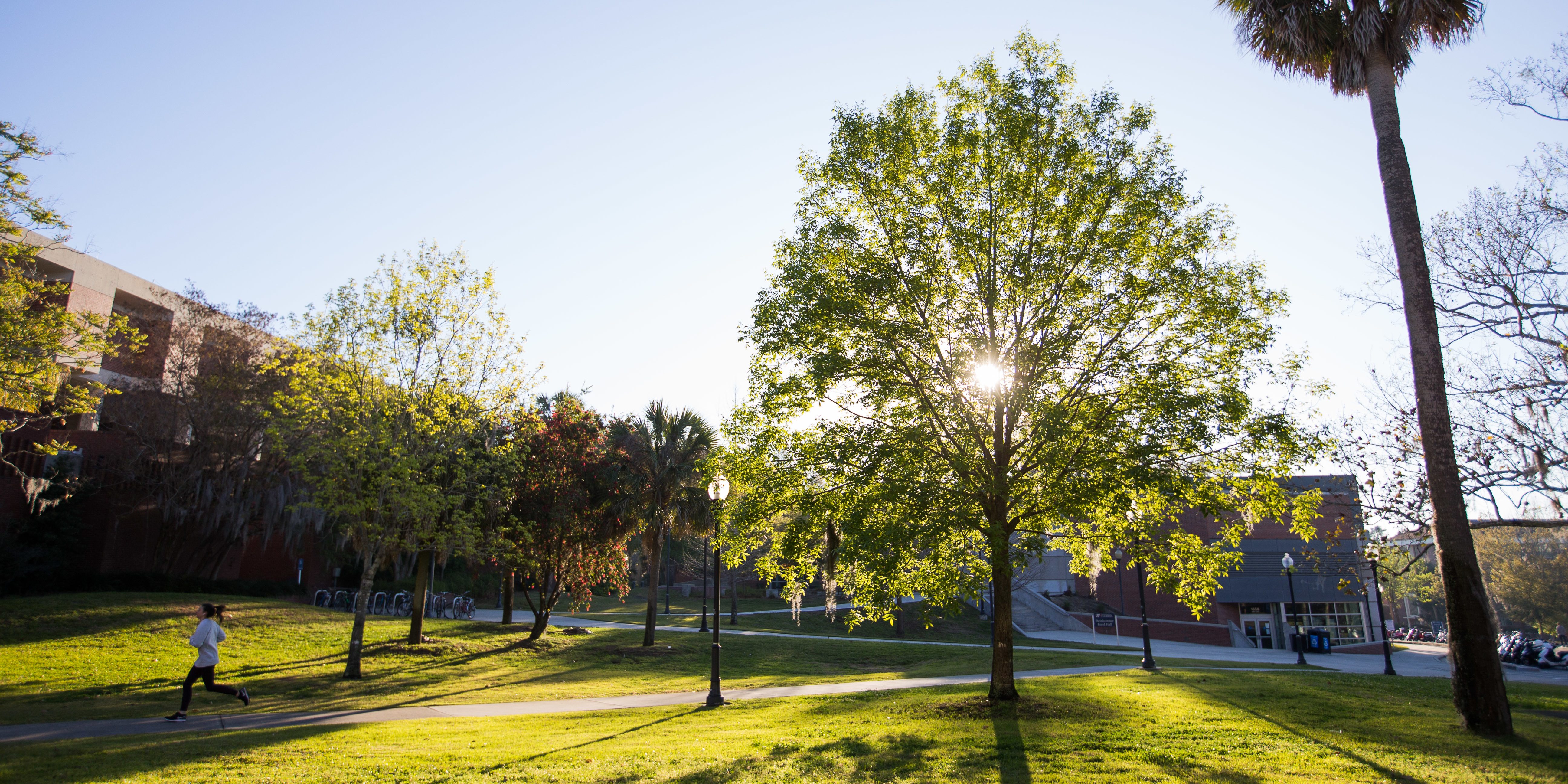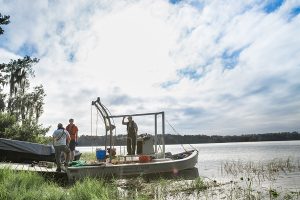- Homepage
- Campus Initiatives
- Academics & Research
- Research Centers & Institutes
Research Centers & Institutes
Highlights:
Florida Climate Institute at the University of Florida
The Florida Climate Institute is a multi-disciplinary network of universities in Florida working together and with external partners in the public and private sectors to achieve a better understanding of climate variability and change, impacts, and societal response. At the University of Florida branch, we achieve this through research, extension, and education across all colleges.
UF Water Institute
Florida’s burgeoning human population and vulnerability to both climatological and anthropogenic changes in the water cycle make the State a unique living laboratory to develop new knowledge and test solutions to global water problems. In recognition of the importance of water issues and the need to address them in a new interdisciplinary manner, the University of Florida (UF) established a campus-wide interdisciplinary Water Institute in May 2006. Engineering, policy, and legal solutions developed in Florida provide a model for others, both nationally and internationally. We envision a Water Institute at UF committed to addressing Florida issues while being recognized for providing solutions, science, and education for national and global water resource problems.
Florida Energy Systems Consortium
FESC’s leadership team and organizational structure assure that truly leading edge research and development of critical importance to the Florida and national economies are developed, world-class students in multiple disciplines of energy are trained, and industry reaps the full benefits of the Consortium’s activities. The Leadership Team of FESC is comprised of highly experienced, highly successful innovators from the various energy related research fields, education, outreach, industrial collaboration, technology commercialization, and economic development. The FESC Director, Dr. David Norton, is accountable for all mission activities of the Consortium and is assisted in his efforts by a Steering Committee, and Associate Directors in Industrial Collaboration & Commercialization, Education & Outreach, and Program Development. The goal of the consortium is to become a world leader in energy research, education, technology, and energy systems analysis.
Other Centers and Institutes:
A review of the current list of centers and programs at the University reveals a large number of centers and institutes that address one or more of the dimensions of sustainability directly, often as the core of their mission. Examples of some of the centers that address issues of environmental, economic and social sustainability include the following:
- Archie Carr Center for Sea Turtle Research
- Bob Graham Center for Public Service
- Carbon Resources Science Center
- Center for African Studies
- Center for Aquatic and Invasive Plants
- Center For Innovative Communities
- Center for Entrepreneurship and Innovation
- Center for Environmental and Human Toxicology
- Center for Environmental Policy
- Center for Governmental Responsibility
- Center for Health and the Built Environment
- Center for Humanities and the Public Sphere
- Center for Jewish Studies
- Center for Latin American Studies
- Center for Public Issues Education in Agriculture and Natural Resources
- Center for Subtropical Agroforestry
- Center for the Study of Race and Race Relations
- Center for Women’s Studies and Gender Research
- Center for World Arts
- Everglades Research and Education Center
- Florida Center for Renewable Chemicals and Fuels
- Florida Climate Institute
- Florida Institute for Sustainable Energy
- Florida Sea Grant
- Geofacilities Planning and Information (GEOPLAN)
- Hinkley Center for Solid and Hazardous Waste Management
- Howard T. Odum Center for Wetlands
- Indian River Research and Education Center
- Institute of Hispanic-Latino Cultures
- Institute of Black Culture
- Institute for Child Health Policy
- Integrated Pest Management (IPM) Florida
- Land Use and Environmental Change Institute
- Nature Coast Biological Station
- McGuire Center for Lepidoptera and Biodiversity
- Ordway-Swisher Biological Station
- Powell Center for Construction and Environment
- Preservation Institute: Caribbean
- Preservation Institute: Nantucket
- Program for Resource Efficient Communities
- Program for Studies in Tropical Conservation
- School of Natural Resources & Environment
- Southeast Climate Consortium
- Southwest Florida Research and Education Center
- Shimberg Center for Housing Studies
- Thompson Earth Systems Institute
- Training, Research & Education for Environmental Occupations (UF/TREEO)
- Transportation Research Center
- Tropical Research & Education Center (TREC)
- UF Water Institute
- Water Resources Research Center
- Whitney Laboratory for Marine Bioscience




